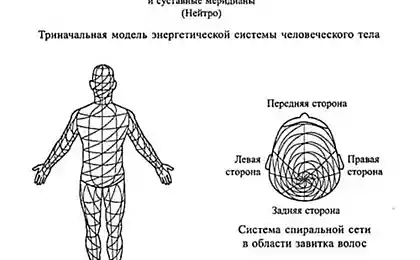Psychology - one of those areas where almost everyone feels like an expert - in fact we are talking about what is familiar to all! People love to make diagnoses and to give advice to friends and colleagues at work (to look smarter). But as it happens with any "published in people" science, eventually took root in the public mind set of a completely absurd statement in which for some reason believed by all.
Website debunks four such psychological myth.
1. If the "let off steam", immediately feel better h2> We often hear that "if ever restrain anger, then you can just go mad!».
Tools such as the beating of special dolls, scream into a pillow or exercise with a punching bag for many appears to be safe and even useful alternative to, to express petty tyrant-chief of all that you think about it.

The idea of tearing anger on inanimate objects formed the basis of many of these therapies. And it looks quite reasonable (and safely for a career).
However, studies have shown that these methods are completely useless. Vent anger, even inanimate objects - it does not mean to get rid of the anger. After this session, the person has a desire to find a reason to get angry more. Anger like "heats" himself.
We all acquire habits - because that's how. When you regularly make something to feel better, then eventually strengthen a habit, and you will need more and more. "Catharsis" (a sense of liberation, cleansing), which we are experiencing, venting anger is addictive not less than all the other bad habits.
If you are accustomed themselves on any occasion to beat the dishes or scream into a pillow, what happens if you get angry, for example, during important negotiations and have not find a plausible pretext to leave, retire anywhere with a suitable inanimate object and let off steam ? ..
2. Just believe in yourself and everything will turn out! H2> It is believed that self-confident children is easier given the training they give birth to more friends, and subsequently grow more adapted to life in the community. "Just believe in yourself!" - Cheering parents. I have more confidence in their own exclusivity and everything necessary for a beautiful life itself will fall at your feet.

Almost every Hollywood film of the life of students, you find confirmation of this theory. Thick outcasts, accustomed to constant mockery, as a result of any event gain confidence in themselves - as a rule, before an important school events. Classmates notice radical changes have taken place, the hero suddenly found plenty still dozing talents, and it instantly becomes a star of the whole school.
This idea is put into the base of countless training and books like "How to succeed in life." In each of them can be found the assertion that self-confidence - a universal key to the solution of all problems and troubles.
Here we are dealing with one of those cases where people are confused about the cause-effect relationships. Instead, the statement "confident children live much better, because they learn well and they have a lot of friends", these "psychologists", reversing the effects and causes, trying to make us think that "success comes to those who are confident in themselves ". That is, you are invited to feel successful almost from scratch, and then, in theory, should be tightened and the real reasons for this self-awareness.
However, according to science, in fact, everything is completely different. Overblown egos child leads only to the fact that he becomes aggressive when any sign of non-recognition of their superiority. And most likely, it is often severely disappointed, as events in the real world does not always develop in the ideal scenario (while at the unpopular fat, by the way, has long formed immune to this kind of frustration).
Of course, we are not experts, but we believe that it would be better to teach children what really leads to success - how to constructively communicate with other people, for example, or to overcome difficulties. Is not it better to allow children to really succeed and naturally feel that they are worth something?
3. Advertising is full of secret signals that affect your subconscious and manipulate your behavior h2> For several decades, this myth regularly pops up, and each time in a new form. In the 1980s, the idea was popular secret signals and images (always sinister) in rock music, which can be detected, for example, scrolling through the song in reverse. It was assumed that such music even at normal listening detrimental effect on the subconscious mind of teenagers.

More popular were stories about the special technology of commercials where certain images flashed so quickly that consciously notice them was impossible ("25th frame"). These frames were designed to subliminal perception and after watching you, without even realizing, execute commands crafty advertisers.
Today, the idea of this series appeared, called "neuro-linguistic programming." It is alleged that you can control other people, deftly and quietly screwing certain words into sentences. This theory - another attempt to create a form of communication that would magically manipulated to bypass the conscious and subconscious, that is, to turn into a helpless puppet companion.
Judging from currently available scientific data, none of the methods of "subconscious Control" does not work.
No, our brain can not perceive "inverted" message. Even if you lose a special song backwards, most of the "secret message" that you will be able to catch, to be a figment of your imagination. Once such a study was conducted: visitors to cinemas showing films with frames advertising Coca-Cola and popcorn have been elusive at the conscious level. The group conducted experiments, said the extraordinary increase in sales of related products after such film shows. However, later it turned out that the results were rigged.
As for the "Neuro-linguistic programming" ... Imagine that someone actually invented a reliable way to send out signals that it is impossible to see or hear, to turn people into robots, implicitly obey the will of others. Succeeded in this skill long ago would rule the world, do not you? For the invasion of a foreign country would not need an army. What for? You can just show the newscast on local television channels and ordered the people to meet the invaders with bread and salt. And since no government in the world has not yet found such a magical way (although to many this is obviously very much like), then the method can be safely called a complete nonsense.
4. Lie detector h2> What do the hero of the popular TV show, a man accused of murder and pretender to the highest bureaucratic post? All of them can check on a lie detector.

Technology that allows to separate the truth from the lies began to use nearly a century ago. During this time, the detector has been greatly improved and has been actively used in all sorts of TV shows around the world. Participants tested by a polygraph and allow to humiliate themselves in front of an audience of millions in the hope of winning a large sum of money.
The problem lie detector has seen the title. It implies that the machine somehow knows what it looks like and can really catch the slightest signs of inconsistency it. Of course, nothing like machines can not do. It simply measures the number of physical responses of the body, which can mean that a person tells a lie.
Scientific experiments have shown that the detector is really quite often able to determine where the truth and where - no. But until the accuracy and reliability of it is still very far away. In 2003, this issue carefully studied National Academy of Sciences (USA) and came to the conclusion that the detector can detect a lie only slightly more accurate than the method of tossing a coin. If the machine error is so high, what it generally is the point?
There are many factors that may affect the accuracy of the test result - from personality traits and physical condition of the test operator to manners to ask questions and interpret the results. In addition, there are many tricks that allow cheat technology. So, in a sense, the detector is less than a nickel coin. With a coin, you at least know that the result - just a coincidence. A car is a false trust.
via mixstuff.ru/archives/8887



























